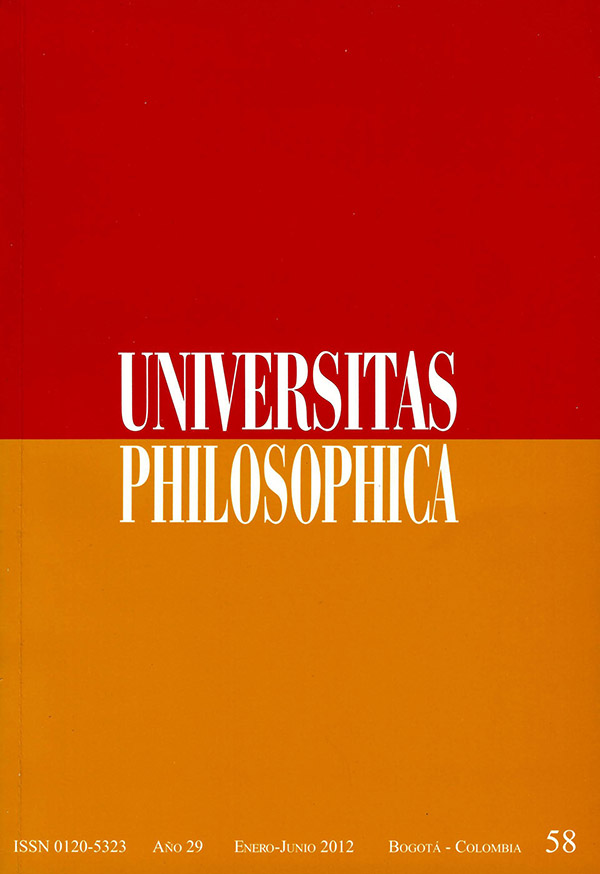Abstract
In the primal meaning that the notion of the common in the political field today reaches, a shared urgency stands out for thinking their conceptual redefinition spaces once again, mainly, that one related to the idea of Communism. Such effort demands going back to the unstable and critical conditions that category encompasses starting with their amazing archaic connotations. This article inquires into a fundamental but not so much thought meaning of the common, the initial etymological tracks which oscillate between solidarity forms in the constitution of all of “us” and the warlike composition practices for the reduction of “the other”. The common is confronted here as a “not thought concept”, enrolled in discursive teleologies that have conferred ambiguous meanings to it and redefining it as a naturalized shared difference by the coextensivity of similarity. Under this hypothesis singularities concur urging to think of communitarian nexuses from very other conditions of possibility.
This journal is registered under a Creative Commons Attribution 4.0 International Public License. Thus, this work may be reproduced, distributed, and publicly shared in digital format, as long as the names of the authors and Pontificia Universidad Javeriana are acknowledged. Others are allowed to quote, adapt, transform, auto-archive, republish, and create based on this material, for any purpose (even commercial ones), provided the authorship is duly acknowledged, a link to the original work is provided, and it is specified if changes have been made. Pontificia Universidad Javeriana does not hold the rights of published works and the authors are solely responsible for the contents of their works; they keep the moral, intellectual, privacy, and publicity rights.
Approving the intervention of the work (review, copy-editing, translation, layout) and the following outreach, are granted through an use license and not through an assignment of rights. This means the journal and Pontificia Universidad Javeriana cannot be held responsible for any ethical malpractice by the authors. As a consequence of the protection granted by the use license, the journal is not required to publish recantations or modify information already published, unless the errata stems from the editorial management process. Publishing contents in this journal does not generate royalties for contributors.


